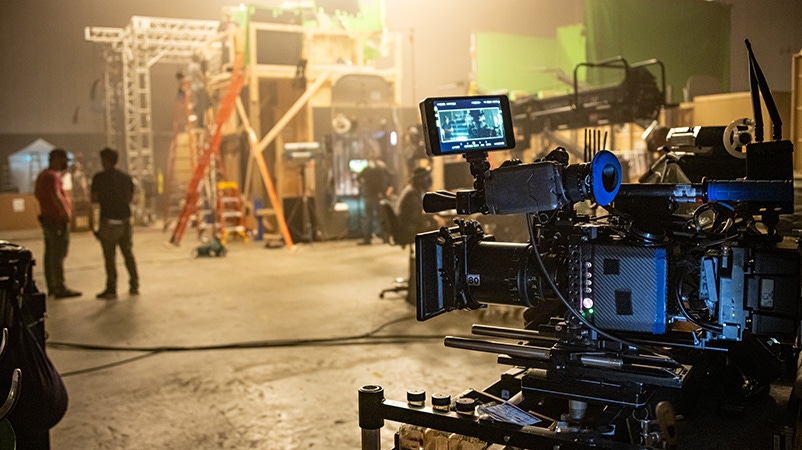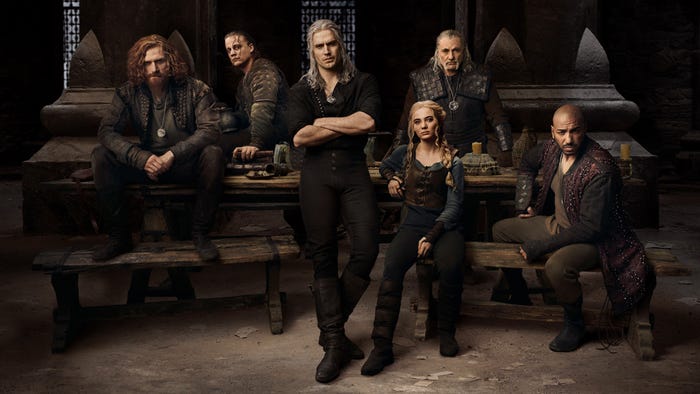
At a Glance
- 25 percent of triple-A game developers reported that the games they work on are being adapted to TV or film.
- But how can developers who make games benefit from their works?
Hollywood's love affair with the video game world is trundling along. In a week where Sony announced that it was adapting Supermassive Games' Until Dawn into a feature film, the GDC 2024 State of the Industry report dropped in with a noteworthy statistic: 25 percent of developers at triple-A game studios say the games they're working on are being adapted to TV or film.
That number drops if you scan the whole of the video game industry, with a still-respectable 10 percent of industry professionals saying they're courting the same offers. Like it or not, such adaptations would have an effect on the cultural impact of video games and the art of developing them.
But reading that statistic raises a dark thought: while game execs and media moguls sign multimillion dollar deals to bring big stories like The Last of Us to the big screen, how will the developers who labored on the game reap the benefits?
Hollywood already erases the work of creatives
The game industry has already face one highly uncomfortable omission of a prominent game developer. When HBO rolled out its adaptation of Naughty Dog's The Last of Us, its credits paid tribute to the game studio and lead writer Neil Druckmann (who also executive produced the show). Shortly afterward, the game's co-director Bruce Straley raised an uncomfortable fact in an interview with the LA Times: his name is missing from that opening crawl.
That fact becomes more glaring if you evaluate how much of the world of The Last of Us came from Straley's close collaboration with Druckmann, who told the LA Times that the critically-acclaimed fourth episode of the show drew deeply on Straley's conception of paranoid survivalist Bill (played in the show by actor Nick Offerman and in the game by W. Earl Brown). If Bill partly sprung from Straley's mind, surely his name belonged on at least that episode?
.jpg?width=700&auto=webp&quality=80&disable=upscale)
Image via HBO.
The bitter truth about Straley's lack of credit comes down to contracts. Druckmann's representatives wrangled a deal that gave him executive producing duties and a a prominently placed credit. Straley did not. Hollywood history is filled with such strange quirks that come more out of boardrooms than writer's rooms.
This specific example calls to mind the struggles comic book artists and writers face in the world of superhero adaptations. Creators sometimes cameo in the credits of films adapted from their work, but they're paid abysmal rates compared to what their employer is raking in.
In 2021 writer Ed Brubaker, creator of Marvel Comics character The Winter Soldier, came forward with the claim that he made more money on his SAG residuals for an appearance in the film Captain America: The Winter Soldier than Marvel paid him for the film's use of his creative work.
His comments drove other creators to speak up, and Marvel has reportedly sought to improve how they're compensated the creators of its world-famous characters (though a 2021 story from The Hollywood Reporter indicated many see the compensation as "hush money.")
Developers who score well-earned credits then face the trial of earning proper financial compensation. That stands to be an even greater uphill battle, when you consider that the video game industry already does not pay workers great rates relative to the profit they bring in.
A cynic might look at this landscape and say "nothing can be done." A pragmatist may say "as games become more valuable to media companies, studios will have more negotiating power that can benefit employees."
And a mush-brained writer on a deadline exhausted after a year of industry layoffs may say "fuck it, I don't have a better argument. Pay the devs what they're owed."
If game studios sign adaptation deals, employees deserve a cut
This is usually the part of an op-ed where I try to be even-handed and explore why such a deal would be difficult (but worthwhile) to implement. I'm feeling spicy today so I'll repeat myself for emphasis: if studios sign adaptation deals, employees deserve a cut.
Some readers may find this an extreme position. It is not! If a production company pays EA to option the Titanfall series for adaptation but it doesn't make it to production, fine, that money can go back into stock buybacks or making Titanfall 3 or something. If the game gets adapted but then is a box office stinker like the 2016 Assassin's Creed film, have legalese that sees developers paid a healthy fee based on the box office gross or TV viewing numbers (not the profit).
But if it's a hit? Even a modest one? Then pay the developers.
Industry professionals responding to the State of the Industry survey already get it. "Hopefully, it brings more audience to games and thus more money for better development," one anonymous respondent wrote, before saying they hope developers "learn from the unionization efforts in the film industry and adopts those practices to make the industry more lucrative for developers."
The game industry is in a unique position to make demands when signing adaptation deals. Unlike DC and Marvel, its intellectual property hasn't been swallowed up by the major media corporations. Sony's the largest company in such a position right now so if you're at Microsoft, or EA, or Riot Games or a Take-Two subsidiary, congratulations! You're the ones with the leverage over your hit game.

Image via Netflix.
Hemming and hawing about this shouldn't be necessary. I've sat through too many panels where executives wax harmonic about "the flywheel of transmedia entertainment." The game does well, the film gets made based on the game, the film's success drives sales of the game, we all saw how this worked with how the Netflix show The Witcher influenced sales of CD Projekt Red's The Witcher 3: Wild Hunt.
The show was adapted from Andrzej Sapkowski's books, not the games, so it's not a fully 1:1 example, but it's what game and media execs want to recreate everywhere.
There's a reason they use the word "flywheel." A flywheel is purportedly self-sustaining and you can hide where its momentum comes from. But the "virtuous circle" of adaptations is much more of a waterwheel, and it's rank-and-file professionals from games and film that make up the roaring river pushing the wheel along.
The games build the audience, the film capitalizes on the audience, which drives sales of the game or its sequel. It all only works if someone makes the game in the first place and is ready to ride the momentum of increased enthusiasm for a sequel.
That someone is you, dear reader! It's you who deserve to be rewarded for your game's success.
Take that leverage. Spin that flywheel. Ride that...waterwheel, whatever, I said I'm brain-mushed, remember? Game developers and their professional peers should benefit from the fruits of their labor. Hiding those fruits behind the shiny glow of Tinseltown doesn't make them any less valuable.
Game Developer and GDC are sibling companies under Informa Tech. The 2024 State of the Industry report was produced in a collaboration between Game Developer and Game Developers Conference.
About the Author(s)
You May Also Like









